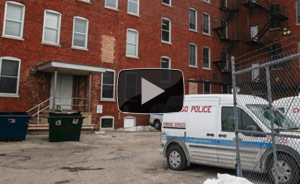 In an effort to curb government dissension, and with an eye towards criminalizing the free expression of patriotic Americans, the Department of Justice has taken steps to classify individuals based on their use of certain terms deemed to be threatening to national security. In an action that would make Nixon’s enemy list seem mild by comparison, the DOJ could target any person known to include what it considers to be “extremist language” in their communications, be it emails, texts, or even conversations with neighbors.
In an effort to curb government dissension, and with an eye towards criminalizing the free expression of patriotic Americans, the Department of Justice has taken steps to classify individuals based on their use of certain terms deemed to be threatening to national security. In an action that would make Nixon’s enemy list seem mild by comparison, the DOJ could target any person known to include what it considers to be “extremist language” in their communications, be it emails, texts, or even conversations with neighbors.
Under the guise of helping the government better understand the “lingo”, the DOJ’s glossary found in its document, Investigating Terrorism and Criminal Extremism – Terms and Concepts, uses its preconceived notions of what constitutes a security threat in defining or interpreting terms used by patriots, constitutionalists, Tea Party activists, and concerned citizens’ groups to describe their discontent with government. For instance, those people who describe themselves as a “constitutionalist” (one who believes that our government should strictly abide by the letter of the Constitution) may likely find themselves on a list of “right-wing extremists” based on the DOJ’s own translation.
Affiliations with political parties, or candidates who support constitutionalist or libertarian viewpoints and policies, will be subject to the same scrutiny by the DOJ and Department of Homeland Security. Much of the language contained within these viewpoints, especially that which espouses a limited, strict-constitutionalist government, can be construed as extremist and a threat to national security.
The slippery slope that is inherent in this document even lists “survivalists” and preppers as those who envision the collapse of civilization and who are preparing stockpiles for a post-government existence. This characterizes a threat to the government because it represents a “sovereign citizen movement” that undermines its control over all citizens. A friendly discussion that includes conspiratorial terms such as “black helicopters” or “globalization”, if overheard and reported to a federalized law enforcement agency, could lead to an extremist classification and possible persecution.
The ramifications are, as yet, unclear; however, with a government that has already demonstrated how its paranoia is manifested in the form of the McCarthy Hearings, precaution and discretion are the order of the day for those of us who foresee the possibility of an off-grid existence.
It has always been recommended that activities associated with emergency preparedness and off-grid living are best kept under the radar so as not to alert neighbors and friends who could present a threat to your safety and stockpile in an aftermath. This advice takes on a much greater significance as the government seeks to target individuals who appear to want to act as independent “sovereign citizens” and who are considered as extremists based on the government’s glossary. The resounding cry of “loose lips sinks ships” now applies to your emergency preparedness plan.
Political activism, even in its mildest form, is not recommended. We know that the FBI has photographed and archived people who participated in the anti-war rallies of the 60s and 70s. There is plenty of evidence to suggest that the FBI conducted covert surveillance on Tea Party activists as well. A boisterous barroom debate on constitutional principles can put you on the FBI’s radar just as easily.
It’s a sad state we’re in when we must keep our political expression to ourselves, but after all, that is the state for which we are preparing. The government seems to be making its own preparations for retaining control after the collapse of society. Only, they will know who their enemies are.
Other articles in this issue:
- Storing Your Stuff Efficiently
- Health Care: The Bill That Keeps On … Taking
- The Next Generation of Meals-Ready-to-Eat
If you liked this article you may be interested in this product from our sponsor.











